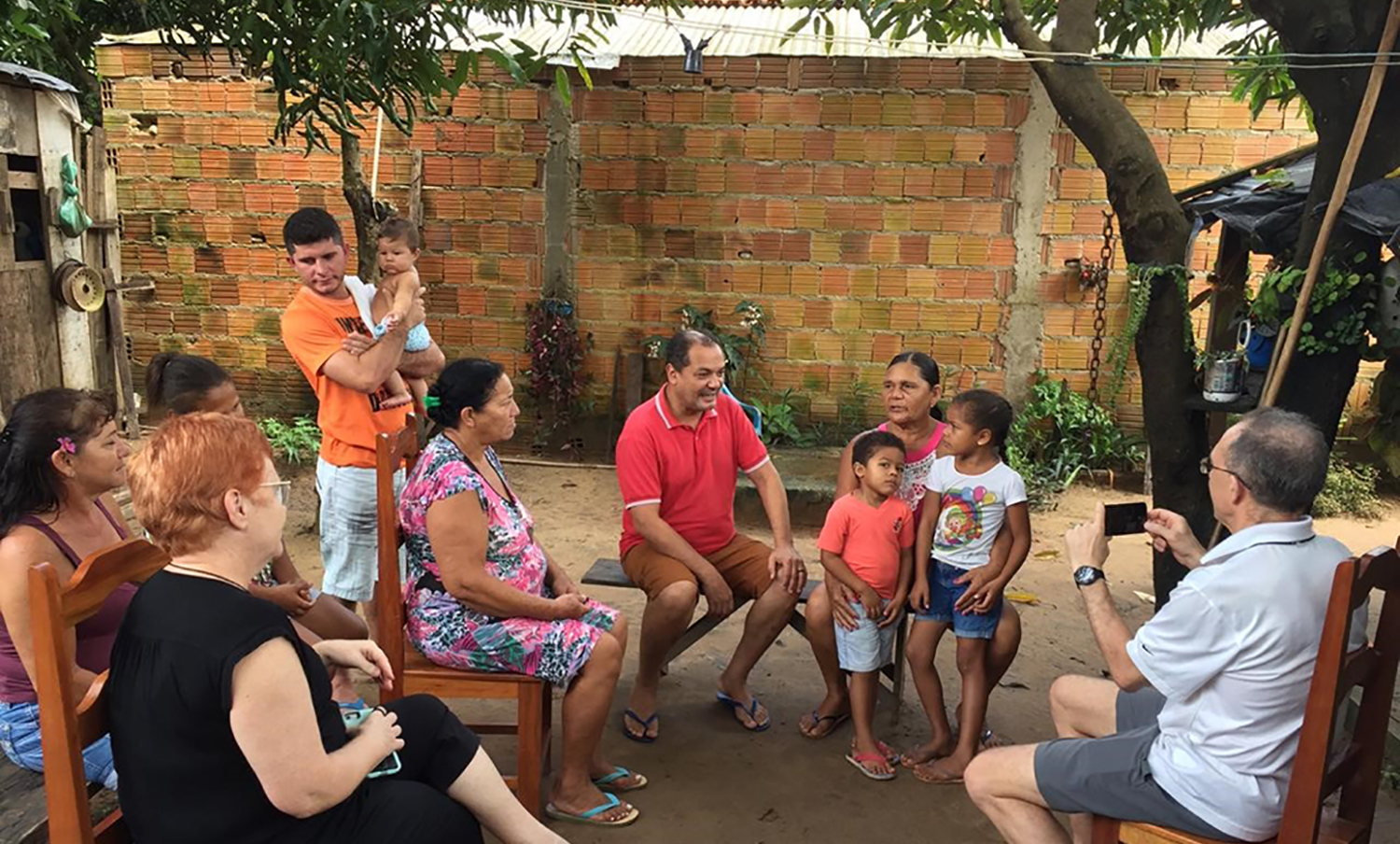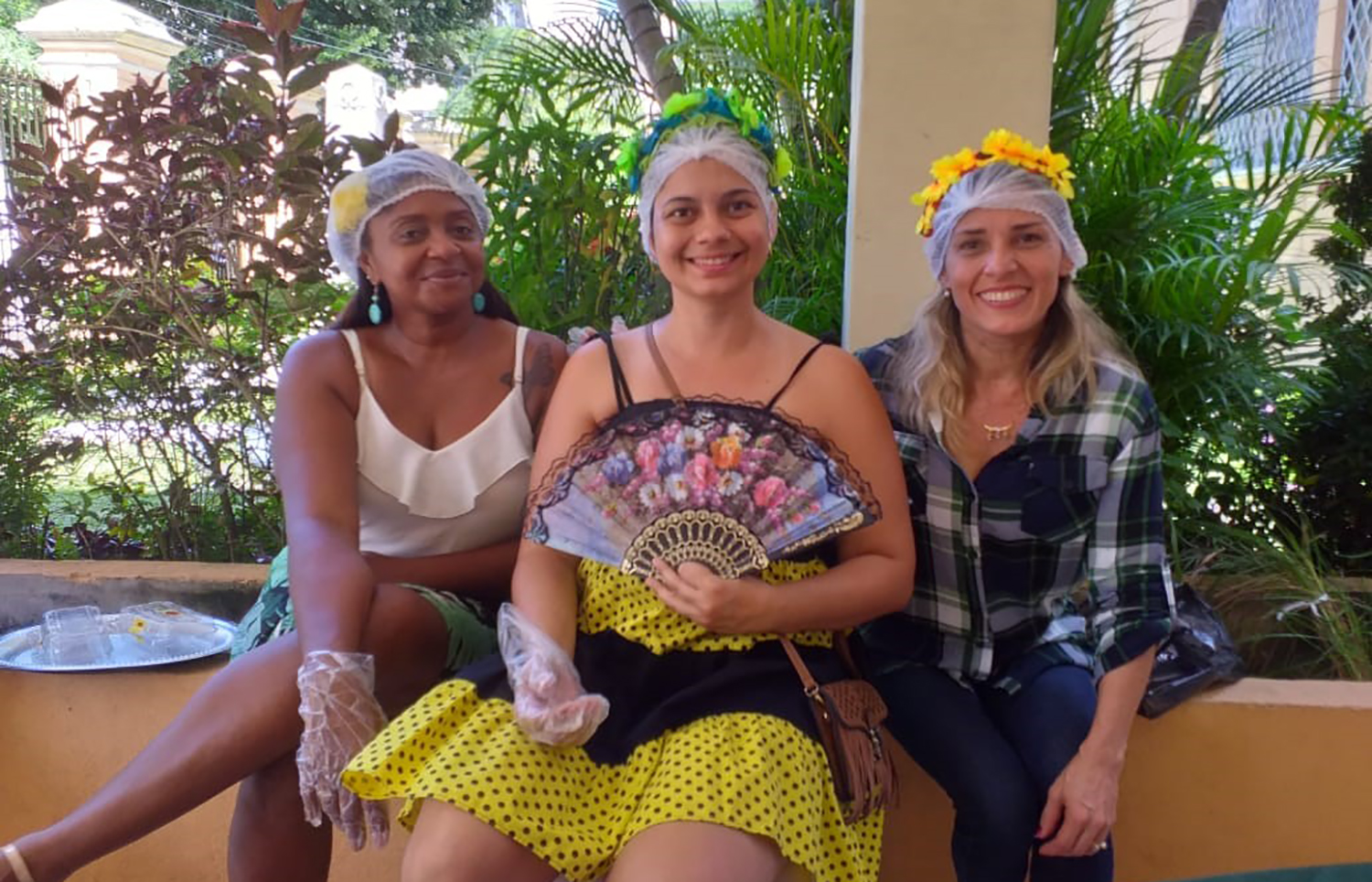
By Ven. Tim Dobbin
Even as we sit on a very cramped flight from Belem to Sao Paulo swimming in a myriad of thoughts and feelings, Rev. Jenny Sharp and I are returning with hearts that are full. We both are deeply thankful for by the gift of ten days with our friends from Amazonia in and around the busting city of Belem (pop. 1.4M) in the northern province of Para.
Their hospitality was outstanding, and we were treated to food and drink the likes of which we had never tasted before, let alone even knew existed. Whilst it took us time to adjust to the heat, humidity and the daily torrential rain, the warmth and generosity of the people more than made up for any minor adjustments.
We were privileged to be part of a special synod which was approving a series of canonical changes passed at a recent General Synod in Brazil. Many of the changes were procedural. Of significance was the Diocese’s passing a motion to approve same-gender marriage and another motion which raised the profile of mission. It was the latter emphasis which touched me time and again in our various visits around the Diocese. Amazonia as young and as materially under-resourced as it remains, is a Diocese who walks the talk when it comes to mission.
One of the questions I took with me was, ‘What does Amazonia have to teach me/us about being church?’ Obviously, the transformative power of over-the-top hospitality was one take-away. Another was their singular focus on those with whom God was calling them to connect.
BISHOP MARINEZ BASSOTTO’S SERMON AT THE OPENING OF HURON SYNOD 2019
Rev. Elias Barata, who is a part-time chaplain with the Mission to Seafarers, volunteers the remainder of his time to support and nuture a mission community ‘Lord’s Annunciation’ in Icoaraci on the outskirts of Belem. About 20 people gather on Wednesday evening in a parishioner’s home to sing, pray, discuss Scripture and eat together. Their Sunday worship revolves amongst two other homes. They host an afterschool music programme that welcomes about 40 underprivileged children. They have recently secured a loan from the national church and purchased a dilapidated home on a main thoroughfare which they plan to renovate over time. It will provide a stable and strategic location for their ministry with children and a home for their bi-weekly worship.
Rev. Sergio Silva works full-time as a law clerk at the courthouse in Belem. Miriam and he have three children. He is studying at night for a law degree to improve his prospects for a promotion. Whilst working in Ulianapolis a city of 60,000 people some seven hours by road from Belem, he not only gathered a small missional community around him. Five years ago, this community built a small church ‘The Divine Saviour’ on a corner lot provided by the farmer on whose land the neighbourhood was developed. Rev. Sergio provided half the funds himself for the construction. He also founded an afterschool programme that provides supplementary tutoring for children struggling in school. Around 60 children attend classes either in the morning or the afternoon. Some of the families of the children now attend the church. Rev. Sergio now works for the law courts in Belem and is the Rector of Holy Trinity in the neighbourhood of Conjunto Maguari in Belem. We worshipped with a small but lively group of parishioners at their Sunday evening service. He is already planning to renovate the parish hall as a rental community space and as a venue for an afterschool music programme for children in the area.

Ministry in people’s backyard
The former Dean of the Cathedral, Rev. Claudio Miranda who was previously a Redemptorist priest, chose to leave his post as Dean in order to focus more on the mission of the Diocese. He now serves the community in Ulianapolis and has plans to expand the church and construct a more suitable meeting space for the afterschool programme – it has already outgrown the church building. He has oversight of a mission community at Saint Isabel which has a weekly healing service. He also coordinates a leadership development programme on Saturdays at the Cathedral from March until August. It attracts folk from all walks of life, including some Anglicans. The practicum component of the course requires that small groups develop a mission project which benefits their local neighbourhoods in some way. One participant described how her group has launched a recycling programme out of her house, a first in her area.
Rev. Marcos Barros has been with the parish of St. Luke’s in the neighbourhood of Marambaia for 14 years. It seemed that his tenure has been one long construction project – renovating a roof, a floor, the electrical system. Recently they have received a loan from the national church to renovate their parish hall and construct a modern kitchen. Again, they plan to provide necessary community space for their neighbourhood. The next stage involves developing a soccer pitch on land in front of the church in order to connect with the local children and youth.
The short answer to my travelling question, ‘What does Amazonia have to teach me/us about being church?’ is this: ‘a lot… an awful lot.’ I trust that there is much they in turn will learn from us. It is for this reason, I am deeply grateful that we have renewed our covenant for another five years.
I look forward to all those ways in which God can and will help us to celebrate and deepen our friendship: through correspondence, through visits, through parish partnerships, through theological education, through sabbaticals, through shared ministry projects…
The opportunities are as many and varied as the Holy Spirit inspires and moves each of you.
Ven. Tim Dobbin represented the Bishop of Huron at the signing of the covenant in Belem.

Pentacost Sunday in Belem